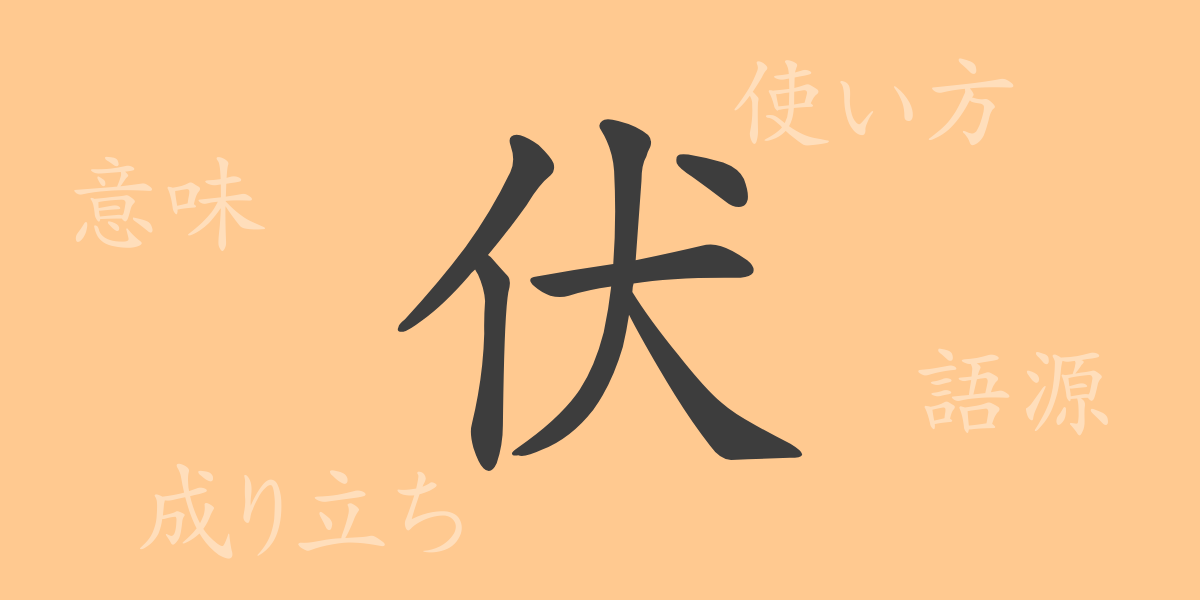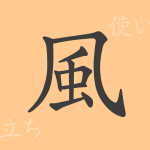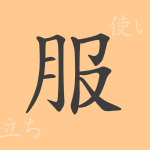The beauty of the Japanese language is reflected in its complex writing system. Kanji (かんじ) characters hold deep meanings in their forms and sounds, serving as essential tools for communication in the daily lives of Japanese people. In this article, we spotlight one of the commonly used kanji, “伏” (ふく, fuku), delving into its origin, meaning, usage, and its role in Japanese culture.
The Origin of 伏 (ふく, fuku)
The kanji “伏” (ふく, fuku) originated in ancient China, initially depicting “a person lying down on the ground.” Over time, its form evolved into its current shape. “伏” (ふく, fuku) came to signify hiding or submission, derived from the posture of animals lying down. It was introduced to Japan during the Nara period and has since developed unique uses in the Japanese language.
The Meaning and Usage of 伏 (ふく, fuku)
“伏” (ふく, fuku) encompasses meanings such as “to hide,” “to lie in wait,” and “to submit.” Metaphorically, it can also mean “to suppress emotions” or “to conceal facts.” Its usage varies depending on the context, allowing for rich expressions.
Pronunciation, Stroke Count, and Radical of 伏 (ふく, fuku)
Let’s explore the pronunciation and basic information of the kanji “伏” (ふく, fuku).
- Pronunciation: On’yomi (音読み, おんよみ) is “フク” (ふく, fuku); Kun’yomi (訓読み, くんよみ) is “ふ.せる” (ふせる, fuseru) and “ふ.す” (ふす, fusu)
- Stroke Count: It has a total of 6 strokes.
- Radical: The radical is “人偏” (ひとえ, hitoe).
Idioms, Proverbs, and Expressions Using 伏 (ふく, fuku)
Kanji “伏” (ふく, fuku) frequently appears in Japanese idioms, proverbs, and expressions. Here are a few examples:
- 伏兵 (ふくへい, fukuhei): Soldiers hidden to deceive the enemy in battle; metaphorically, hidden strength or talent.
- 伏線 (ふくせん, fukusen): Clues or hints prepared in advance for later developments in stories.
- 伏見 (ふしみ, Fushimi): A place name in Kyoto, known for its historical background and landmarks.
- 一日の長を伏せて (いちじつのながをふせて, ichijitsu no naga o fusete): An idiom meaning an elder treats a younger person without considering age differences.
Conclusion on 伏 (ふく, fuku)
The kanji “伏” (ふく, fuku) has evolved to encompass various meanings, playing a significant role in the Japanese language. Understanding the hidden meanings behind words can deepen your appreciation of the Japanese language’s richness. We hope this article helps enhance your understanding of “伏” (ふく, fuku).

























